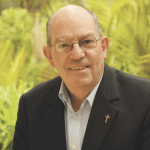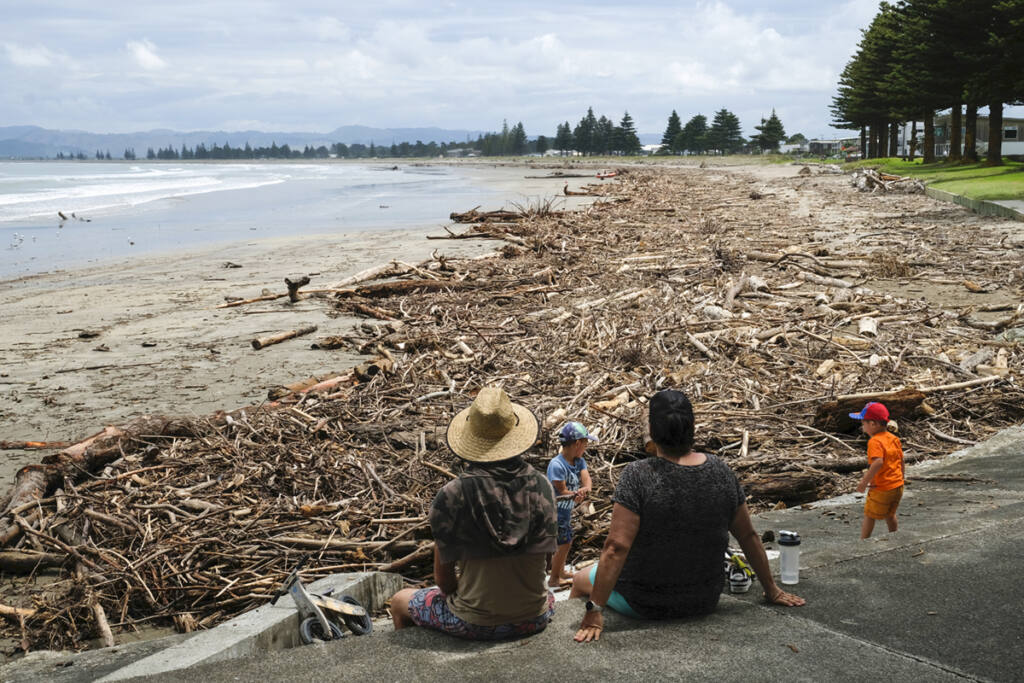
WelCom February 2023
Fr James Lyons
Priest of the Archdiocese
Taking responsibility for climate change
Blame it on the steam engine!
The global demand for energy took off in the 18th century with the invention of the steam engine, fuelled by coal, a fossil fuel abundantly available in England.
Coal first, then oil, have driven the industrial world ever since, with little or no regard to the consequences for life on earth.
Today there are recognisable signs that, by treating the earth as a machine to serve our human needs, the human species have unwittingly, though perhaps blindly, put all life in extreme danger of extinction.
We have made science, technology and economics central to ensuring excellence in production and ever greater material prosperity, which we call progress.
There is such a thing as ‘ecological sin’ which rises when we destroy or pollute the environment needlessly.
These points are made in a thoroughly researched paper presented to the New Zealand Roman Catholic–Lutheran Dialogue at a meeting last year, by Lutheran delegate, Petrus Simons.
He crafted an excellent presentation, drawing on the writings of noted scientists, economists, United Nations’ reports, and particularly the Dutch philosopher and engineer Emeritus Professor Egbert Schuurman, and Pope Francis’ encyclical Laudato si’, to outline the problem and to propose climate warming be looked at ‘in the light of an ethics of responsibility.’
We are far ahead of the steam engine now, the pursuit of ‘progress’ turning nature into property and making paramount the need to maximise profits. One consequence of this is to source the cheapest labour, with the likelihood of this leading to poor living conditions and human rights abuses.
Simons’ research discloses an on-going lack of foresight together with ‘unquestioned belief in science and technology’ as potentially resulting in regress rather than progress. The world is now a ‘tortured and dangerous place’ and he asks, ‘Is there a way out?’
There is confidence in his affirmative answer.
Quoting Egbert Schuurman, he sees the heart of the problem in the perversion of the greatest commandment of love [Matthew 22:37-40]: Be as effective as is technically possible; and the second like unto it is, Be as efficient as is economically possible. The breadth and depth of a technological materialistic culture hang on these two commandments.
Simons calls for repentance of this perversion by putting ‘emphasis on the services that technology can provide to make the earth habitable for all people, present and future generations’ thus enabling ‘organic things, plants and animals to retain their integrity and ability to reproduce’.
His thought-provoking analysis of the negative effects of nuclear energy, the internet and digitisation, chemical fertilisers, extensive trading patterns and deforestation is very compelling. So too, is his sense of wonder as he writes of the earth as our common home, quoting cosmologist, Peter Korevaar, on ‘the amazing relationship’ between our planet, the moon and the sun.
A primary focus in any ethics of responsibility is the care we take of ourselves, one another, all that gives and sustains life, and the earth, our common home. Faithfulness, loyalty and truth flow naturally from a caring disposition.
There is a ten-point checklist provided to help determine a secure and healthy environment, free especially from human mismanagement regarding practices and proposals. This list includes:
• Who would economically benefit or be disadvantaged from implementing the proposal? Would good care of the environment and its treasures be promoted?
• Would human habitations become more or less friendly, safe or more dangerous, to people, children, elderly, disabled?
A popular view is that all we need to do is switch from fossil fuels to renewables. But Simons sees such a switch as simply raising the demand for rare earths and lithium. His radical solution is to simply cease our dependence on energy, making the switch to renewables easier.
A primary focus in any ethics of responsibility is the care we take of ourselves, one another, all that gives and sustains life, and the earth, our common home.
Two very recent comments tend to endorse Petrus Simons’ work.
The first, from Bishop John Arnold, the Environmental lead for the Catholic Bishops Conference of England and Wales: ‘Even if humanity were not facing an urgent crisis, we should seek the right disposition towards the created environment, and if we are to live a rightly ordered life, we must learn to live simply. There is such a thing as “ecological sin” which rises when we destroy or pollute the environment needlessly.’
And from Kim Sinclair, the supervising art director for the recently released film AVATAR, The Way of Water: ‘Since conflict between a soulless, wasteful culture and a more spiritual, sustainable one is a key theme of the AVATAR series, it made sense to try and minimise pollution and waste’ – with almost no polystyrene, and a clean, sustainable approach in carpentry and 3D modelling.
A final word from the author: ‘Never have so many scientists assisted so many nations to find a solution to a problem from which nobody can escape.’
The complete text of Petrus Simons’ Climate Warming in the Light of an Ethics of Responsibility is available on request from: petrus.simons@xtra.co.nz
